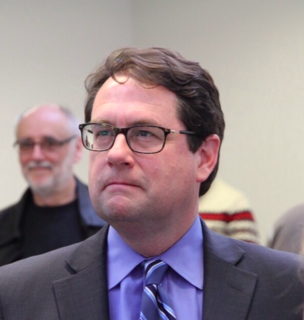A Quote by Dana Goldstein
Younger teachers are definitely more likely to have worked at charter schools as opposed to have just heard of them. Charter schools explicitly look, often, to hire younger people. I've even talked to people who didn't necessarily go into teaching thinking they wanted to work at a charter school or even may have been considered critics of the charter school movement, and found that it was the only way for them to get their foot in the door. So young people just have much more familiarity with the concept.
Quote Topics
Been
Charter
Charter Schools
Concept
Considered
Critics
Definitely
Door
Even
Familiarity
Foot
Found
Get
Go
Heard
Hire
Just
Likely
Look
May
More
Movement
Much
Necessarily
Often
Only
Opposed
People
School
Schools
Talked
Teachers
Teaching
Them
Thinking
Wanted
Way
Work
Worked
Young
Young People
Younger
Younger People
Related Quotes
A lot of charter schools are non-union schools that take a lot of teachers from alternative tracks, like Teach For America. They do this in part because a lot of charter schools have very strong ideologies around how they want teachers to teach. And they find that starting with a younger or more inexperienced teacher allows them to more effectively inculcate those ideas.
An early attempt at education choice was charter schools. These were meant to attract the best and brightest students and provide them a level of education they often could not find in their local school districts. The problem is that, of the thousands of charter schools, many are outright failures.
If charter schools are not more successful on average than the public schools they replace, what is accomplished by demolishing public education? What is the rationale for authorizing for-profit charters or charter management organizations with high-paid executives, since their profits and high salaries are paid by taxpayers' dollars?
Magna Carta only came into being in 1217, when the wording had been changed and parts of the original were extended in the Charter of the Forests. This complementary charter covered liberties granted to the common man, including rights to the commons, grazing, fishing, water, and firewood, and was perhaps the first ecological charter in history.
Not every child learns for the same purpose, not every child thrives in the same settings and schools. Limiting a child to just one opportunity does nothing more than limit that child's future. The way forward must involve more public charter schools, which offer parents a tuition-free alternative to their neighborhood school.





























